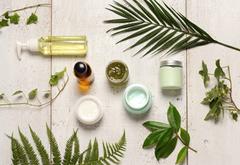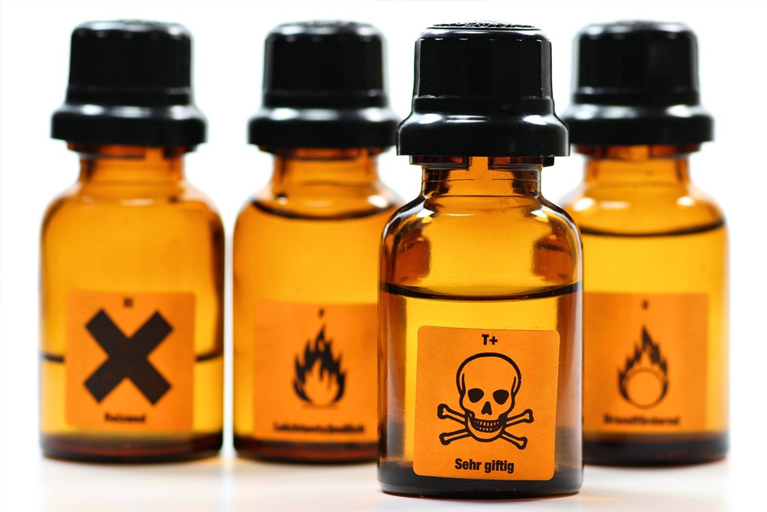
7 Toxic Chemicals in Beauty Products You Use
In a health-conscious society, we put a lot of thought into what we put into our bodies. But what about what goes into our bodies? It’s just as important. Our skin is the largest organ we have, and, since it’s extremely porous, what you put on it gets absorbed. Meaning that the ingredients in your skincare are just as important as the ones in your food. So, what does this mean when you go to select skincare? Take a look at the back of the bottle and make sure it doesn’t include any of the following harsh chemicals or toxins.
Parabens
You’ve heard the word before — Parabens — but might not know the potential side effects of products that contain it. Parabens are typically found in cleansers, deodorant, makeup, and other types of cosmetics to keep the product fresh. But this freshness comes at quite the cost. To your body, Parabens mimic estrogen, a hormone that your body naturally produces. Though the production of estrogen is a natural occurrence in your body, excess estrogen has been associated with increased risk of breast cancer and skin cancer. Scary, right? The FDA acknowledges this link, but for some reason has not ruled it out as too harmful to use in cosmetics. This means that, if you’re unaware of the risk, you could be using products with Parabens in them right now. Go ahead, check your cabinet; we’ll wait. The key is to look for products that specifically state that they are “Paraben-Free”.
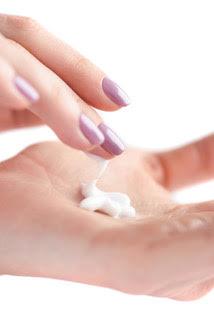
Sulfates
Again, you’ve probably heard of sulfates, but might not be aware of their potential harm on your skin. While sulfates aren’t found in many cosmetics, they are found in a lot of shampoos and cleansers, to increase the foaming power of the product. You know that really good lather you get from your shampoo? That’s caused by sulfates, and, while it might be fun to use those suds to create an sulfates in shampooEmma-Stone-esque mohawk, it’s not so great on your scalp. If you’re thinking, “but the suds get my hair so. clean.” You’re right. It gets rid of all the build up and grease, but it’s also stripping away the good moisture and along with it. It’s stripping the oils that are naturally protecting your scalp. This can cause skin irritation, redness, dryness, and itching. That’s not all, either. Sulfates can cause your hair to become brittle and can actually fade your hair color. So that $200 you spent a few weeks ago at the salon? That could be going down the drain along with your sulfate-suds.
When hair color starts to fade, the beauty industry reacts. Many companies are introducing Sulfate-Free shampoos so, if you’re finding that your scalp is dry and irritated, or that your hair color is fading faster than you’d like, you may want to switch up your routine. If you just can’t imagine a shower without suds, though, don’t fret. Sulfates aren’t severely harmful to your health. If you’ve had success with sudsy shampoos and had no irritation, don’t feel like you have to switch it up!
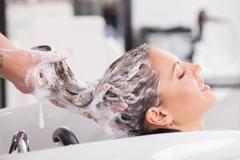
Products from Abroad
While the FDA works hard to keep products safe for consumer use, it can only control products that are created in the United States. While they try to regulate products that are imported, because of lack of resources and authority, they inspect only 1% of imports. Foreign companies do not have to report adverse reactions or abide by the same laws. This means that if you’re using products that are imported from foreign countries, they may be created in poor conditions and contain ingredients that are not FDA approved. Look for products that are developed fully in the United States, and do not important products (or even ingredients) from other countries that don’t follow the same standards.
Formaldehyde
You’ve heard of Formaldehyde, but probably wouldn’t expect to see it in your cosmetics. Though it may be surprising to hear, Formaldehyde is commonly used in cosmetics as a preservative. You may find it in nail polishes, hair gels, soaps, makeup, lotions, deodorants, shampoos, and more (so pretty much your whole bathroom!). Short-term exposure to Formaldehyde, like in products you rinse off, has been linked to skin irritation, scalp burns, and hair loss. Long-term effects, however, are much scarier. With high, or more prolonged, exposure, Formaldehyde can cause cancer. Besides its use in nail polishes, the FDA does not currently prohibit or regulate the use of Formaldehyde in cosmetics. The key? Look for products that don’t have Formaldehyde (or another version of its name – Formalin) in its products.
Propylene Glycol
Propylene Glycol (or PG) can be found in many moisturizers and cosmetic Propylene Glycolproducts. While it’s used to condition skin, it has been found to cause hives, irritation, and dermatitis. Its main purpose is to penetrate your skin to help your skincare reach deeper. While this might be good if you were using all natural products, if you’re not, it helps harmful chemicals get even deeper into your skin. PG itself typically sits on the surface of your skin, dissolving your natural oils. Soon, your skin starts to feel dry, and you’ll feel the need to re-apply your moisturizer (that contains Propylene Glycol), and the vicious cycle begins again. This can cause an increase in skin aging and irritation (two things you’re trying to avoid when moisturizing your skin).
While there’s a lot of information out there about Glycols, it’s important to note that not all glycols are created equal. Caprylyl Glycol, for example, is derived from caprylic acid – a natural fatty acid found in coconut oils, palm oils, and some milk. This type of Glycol (as well as some other Glycols) have been found to have no health risks and can still help your cosmetics be more effective. So when you’re selecting your cosmetics, don’t avoid Glycol entirely, just be sure that the product your choosing doesn’t contain harmful Glycols like Propylene Glycol or Butylene Glycol.
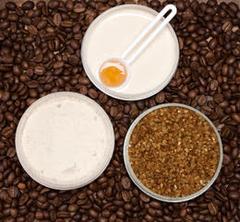
Alcohols
Like Glycols, Alcohols are also not created equal. There are good alcohols, that don’t cause irritation (also known as fatty alcohols), like cetyl, stearyl, and cetearyl alcohol. Then there are drying alcohols, that do cause irritation, like SD alcohol, denatured alcohol, benzyl alcohol, propanol, and isopropyl alcohol. Found in a lot of skincare, these can give a great short-term feeling of skin irritants in cosmeticsweightlessness and a quick-dry finish. While products containing these drying alcohols may be tempting for those with oily skin, the long-term negative effects far outweigh any positive short-term effects. Though your skin may have that silky matte finish right away, stripping the skin of its natural oils causes your body to react and produce even more oils (causing your skin to be, ugh, even more oily). Removing your skin of its natural oils, as many of the products above do, removes the protective layer that naturally occurs on your skin. This can make your skin vulnerable to acne causing bacteria and speed up the aging process of your skin.

THE NEW STANDARD
While it may seem like a daunting task to find cosmetics that contain no harmful ingredients, it’s important to ensure that what you’re putting on your body is benefiting you and not causing you short or long-term consequences. Natural alternatives do exist and skincare can be just as effective without being harmful. Luckily, cosmetic companies are reacting to consumer needs, and consumers need to feel comfortable purchasing products that won’t harm them or their skin.
At Cirem, we’re dedicated to providing the beauty world with quality products that contain no harsh ingredients. Our products aren’t tested on animals. We know exactly what ingredients to use that won’t harm anyone’s skin. The only testing we do is on ourselves, volunteers, and of course, human participants during clinical trials. We are also proud to not only develop our own formulas from scratch, but to handle all sides of the business from beginning to end, here in the United States.
